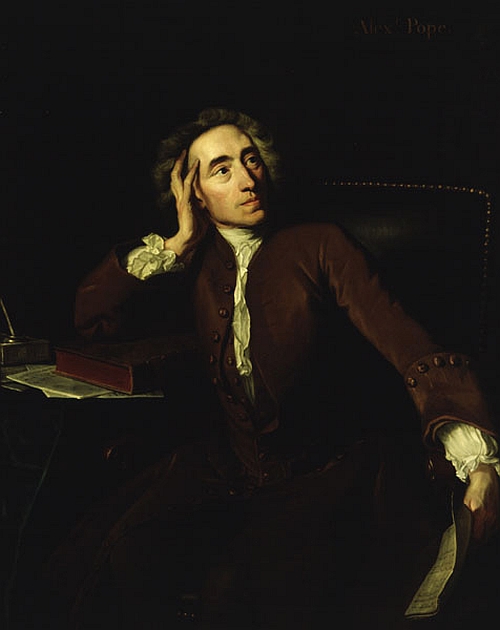
’Twas then, the studious head or generous mind,
Follower of God, or friend of human-kind,
Poet or patriot, rose but to restore
The faith and moral Nature gave before;
Re-lumed her ancient light, not kindled new;
If not God’s image, yet His shadow drew:
Taught power’s due use to people and to kings,
Taught nor to slack, nor strain its tender strings,
The less, or greater, set so justly true,
That touching one must strike the other too;
Till jarring interests, of themselves create
The according music of a well-mixed state.
Such is the world’s great harmony, that springs
From order, union, full consent of things:
Where small and great, where weak and mighty, made
To serve, not suffer, strengthen, not invade;
More powerful each as needful to the rest,
And, in proportion as it blesses, blest;
Draw to one point, and to one centre bring
Beast, man, or angel, servant, lord, or king.
For forms of government let fools contest;
Whate’er is best administered is best:
For modes of faith let graceless zealots fight;
His can’t be wrong whose life is in the right:
In faith and hope the world will disagree,
But all mankind’s concern is charity:
All must be false that thwart this one great end;
And all of God, that bless mankind or mend.
Man, like the generous vine, supported lives;
The strength he gains is from the embrace he gives.
On their own axis as the planets run,
Yet make at once their circle round the sun;
So two consistent motions act the soul;
And one regards itself, and one the whole.
Thus God and Nature linked the general frame,
And bade self-love and social be the same.
—Alexander Pope, Essay on Man, epis iii, sec vi (1734)


